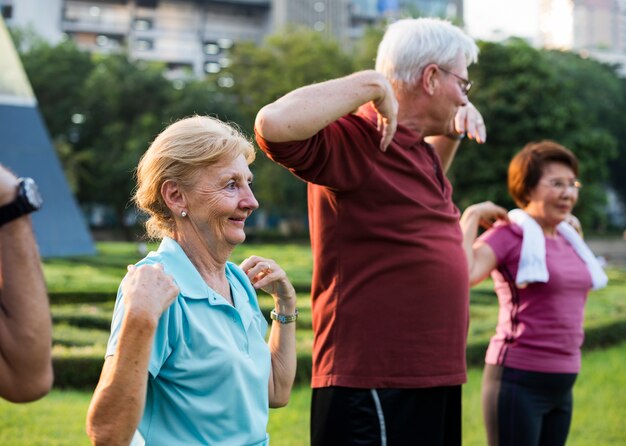
There’s no age limit when it comes to staying fit and healthy. If you think getting older means it’s time to retire to your bed and slow down, it’s time to rethink that idea. You can stay strong, independent, and healthy well into your later years, simply by staying active and moving around your home.
By embracing an active lifestyle and avoiding a sedentary routine, you can keep both your body and mind youthful and energized. It’s all about making small, positive changes to your everyday life. Let’s dive into some simple and practical tips that can help you stay mobile, fit, and healthy as you age.
### Find Activities You Truly Enjoy
Staying active doesn’t mean spending hours in the gym or doing an intense workout. Focus on activities you genuinely love, like gardening, playing badminton, going for walks, or even dancing to your favorite music. These hobbies can be fun, relaxing, and a great way to move your body without feeling like a chore. Plus, this is the perfect time to rediscover passions you may have put aside during your busy younger years. Doing what you love won’t just improve your physical health—it’ll boost your mood too.
### Stay Active in Your Daily Routine
You don’t have to leave your home to get moving. Small routine changes can go a long way. For example, instead of sitting for long periods, make a habit of walking around, cleaning, or bending to organize things. Skip the elevators and use stairs whenever possible, and try walking to nearby destinations like the grocery store or a park. These simple actions can keep your joints flexible, improve blood circulation, and reduce the risk of stiffness and pain that comes with aging.
### Team Up with a Buddy
Finding a buddy who shares your interest in staying active can make the journey much more enjoyable. Whether it’s a friend, neighbor, or family member, having someone to join you for walks, exercises, or even household activities can help keep both of you motivated. A partner also gives you the chance to socialize, share laughs, and create a healthy sense of competition. Plus, they’ll be there to offer help or support if you need it, and having company can protect against loneliness, which often affects older adults.
### Fill Idle Moments with Activity
Too much sitting or lying down can lead to both mental and physical health issues, so it’s important to fill those idle moments with something active. Use spare time to tidy the house, plant flowers in the garden, teach your grandchildren something new, or even dive into a book. Small efforts like these can keep your mind engaged and your body moving, helping to maintain your strength and overall health.
### Build an Exercise Routine
Planning an exercise routine is key to staying fit. If you’re new to working out, start light—think brief walks or simple stretches. Gradually increase intensity as your body gets comfortable. Aim for at least 150 minutes of moderate activity a week, broken down into 30 minutes a day over five days. Weight training, stretching, or even light cardio exercises like cycling or swimming can work wonders. Don’t forget to stay hydrated, take breaks when needed, and consult a professional if you’re unsure about which exercises are safe for you.
### Add Aerobic Activities to Your Day
Aerobic exercises like dancing, jogging, swimming, or rope jumping are fantastic for strengthening your heart and improving blood circulation. They even help maintain a healthy weight, lower blood sugar levels, and build flexibility. If you stick with activities you enjoy, they won’t feel like exercise—they’ll just be a fun part of your day.
### Strengthen Your Body With Weight Training
Incorporating strength training into your routine can help build muscle mass, improve bone density, and increase stability. You don’t need fancy gym equipment—use light weights, resistance bands, or even cans of food. If lifting weights feels overwhelming, try household tasks that involve carrying heavy items. Start with lighter loads and gradually increase repetitions as you build endurance. Just remember to balance your strength training with aerobic workouts for the best results.
### Keep Your Brain Active
Aging isn’t just about physical health—mental health matters too. To prevent memory problems or cognitive decline, engage in activities that stimulate your brain. Puzzles, crosswords, Sudoku, and strategy games can all help keep your mind sharp. These small exercises promote brain activity, boost blood flow, and even help grow new brain cells, no matter your age.
### Manage Stress to Stay Balanced
Stress is a health risk for anyone but can be particularly harmful as you age. Too much stress can lead to anxiety, depression, and negative physical side effects. To keep stress levels in check, try mindfulness exercises such as yoga, meditation, or deep breathing. These practices not only calm your mind but also teach you how to approach life’s challenges with peace and clarity.
By staying active, engaged, and positive, you can ensure a healthier and more independent lifestyle as you age. Adopting these habits will not only help you maintain energy and vitality but will also keep health issues at bay, allowing you to enjoy life to its fullest.